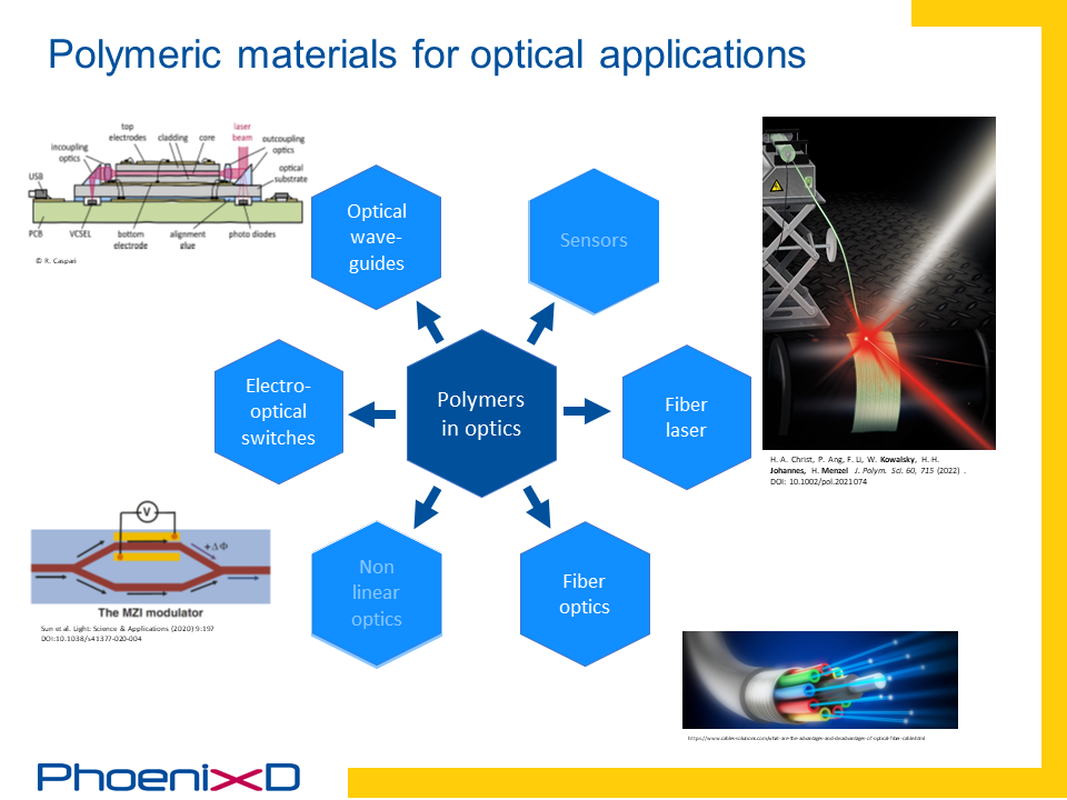Prof. Dr. rer. nat. Henning Menzel


38106 Braunschweig


38106 Braunschweig
Research in PhoenixD
We are producing various polymeric materials for use in PhoenixD. Electrorefractive materials play a key role as actively switchable materials in optical elements and are therefore of great importance for PhoenixD. Polymers are of particular interest in this respect because they can be easily integrated into corresponding production processes. Important aspects are the influence of the polymer matrix on the incorporated nonlinear optical chromophores as well as the processability of the materials. In addition to organic dyes also inorganic nanoparticles in particular fluorescent semiconductor nanoplatelets are incorporated into polymers in order to provide material for PxD. For example, we are researching the possibilities of polymer fibers produced from PMMA, cycloolefin copolymers (such as Topas®) or polycarbonate using stable jet electrospinning for optical applications. For this purpose, fluorescent nanoplatelets (e.g. CdSe@CdS) are added during the spinning process. Under certain conditions, an unusual orientation of the NPLs in the fibers could be detected, which would be advantageous in various optical applications such as light collection systems or fiber lasers. Stimulated emission has already been demonstrated in such fibers with organic dyes. An important aspect is to study the mechanisms underlying the orientation of the nanoplatelets based on the viscoelastic properties of the polymer solution.


 ©
Henning Menzel
©
Henning Menzel


 ©
Henning Menzel
©
Henning Menzel


